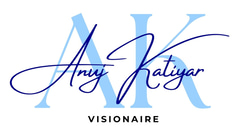Top 5 Career Counseling Trends for 2025
The rapidly evolving job market and integration of new technologies have significantly reshaped career counseling practices. From AI-powered tools to lifelong learning strategies, professionals in the field are adopting innovative approaches to guide individuals in building future-proof careers. This blog explores the top five career counseling trends expected to dominate 2025.
Dr. Anuj Katiyar
7/8/20244 min read

1. AI-Driven Career Guidance
Artificial intelligence is revolutionizing career counseling by making the process more precise and personalized. AI tools analyze vast data sets to provide tailored career suggestions, identify transferable skills, and even optimize resumes. Platforms leveraging AI chatbots and virtual advisors assist clients in real-time, offering recommendations aligned with labor market trends and individual profiles. These tools save time for counselors and enhance their focus on strategic guidance.
AI is becoming a cornerstone of career counseling, enabling precision and personalization in advising clients. AI algorithms analyze a wealth of data, including educational backgrounds, personality traits, job market trends, and individual aspirations, to generate actionable insights.
Applications in Career Counseling:
Virtual Career Advisors: Platforms like Pymetrics and LinkedIn’s Career Explorer use AI to assess skills and suggest career options.
Real-Time Assistance: AI chatbots like IBM Watson provide 24/7 career support, answering questions and guiding users through application processes.
Skill Gap Analysis: Tools like SkillSyncer evaluate resumes against job descriptions, identifying gaps and recommending skill acquisition strategies.
Benefits:
AI tools enhance efficiency, reduce human bias, and empower counselors to focus on building deeper client relationships. These technologies also provide clients with real-time feedback, creating an interactive and engaging counseling experience.
Future Prospects:
Expect greater integration of generative AI, like ChatGPT, in resume-building, mock interviews, and personalized career planning.
2. Skills-Based Counseling
With the shift in employer expectations, traditional qualifications are being replaced by skill-centric hiring practices. Career counselors emphasize the importance of acquiring technical, digital, and soft skills, such as adaptability and emotional intelligence. Skills-based counseling ensures individuals stay competitive in dynamic industries like AI, healthcare, and green technologies. This trend also helps clients identify upskilling opportunities through micro-credentials and online certifications.
In a rapidly evolving job market, employers are prioritizing skills over degrees. Career counselors are pivoting to focus on identifying, nurturing, and showcasing clients’ skillsets to match industry demands.
Key Areas of Focus:
Soft Skills: Emotional intelligence, adaptability, and communication are in high demand across sectors.
Technical Skills: Fields like AI, machine learning, cloud computing, and data analytics are growing exponentially.
Industry-Specific Skills: Career counselors guide clients to acquire certifications tailored to their desired industries, such as healthcare, green technology, or finance.
Counseling Strategies:
Customized Learning Paths: Counselors recommend relevant online platforms like Coursera, Udemy, and Khan Academy.
Role Play and Simulation: Mock scenarios to practice skills like negotiation and decision-making.
Portfolio Building: Emphasis on creating portfolios or projects to demonstrate expertise.
Benefits:
By focusing on skills, counselors help clients future-proof their careers, ensuring they remain competitive in a job market that values adaptability over static knowledge.
3. Virtual Counseling Platforms
The rise of remote work and global connectivity has popularized virtual career counseling. Platforms like video conferencing and online assessment tools eliminate geographical barriers, making counseling accessible to clients worldwide. This trend is particularly significant for individuals in remote areas or those balancing busy schedules, offering a convenient alternative to traditional face-to-face sessions.
With the rise of remote work and global connectivity, virtual career counseling platforms have become indispensable. They provide flexibility and accessibility, allowing clients to connect with counselors regardless of location.
Popular Tools and Features:
Video Conferencing Software: Zoom, Microsoft Teams, and specialized platforms like VMock streamline virtual counseling sessions.
Interactive Assessments: Online psychometric and aptitude tests make career evaluation more engaging.
Resource Libraries: Platforms host webinars, eBooks, and tutorials for continued learning.
Accessibility Benefits:
Virtual platforms bridge the gap for individuals in remote locations or those balancing professional and personal commitments. They also reduce costs associated with travel, making counseling more affordable.
Challenges and Solutions:
Challenge: Building rapport virtually.
Solution: Use of personalized video messages and pre-session assessments to create a connection.
Challenge: Digital literacy gaps.
Solution: Provide user-friendly guides and technical support.
4. Data-Driven Insights for Career Planning
Data analytics plays a critical role in modern career counseling. By examining job market trends, salary patterns, and emerging skills, counselors provide clients with evidence-based recommendations. Tools powered by data analytics help individuals make informed decisions about career shifts, helping them align with high-growth opportunities and industries.
Data analytics provides a factual basis for career recommendations, analyzing job market trends, salary benchmarks, and skill demands to craft tailored advice.
Applications in Counseling:
Job Market Forecasting: Predictive analytics help clients identify high-growth industries.
Personalized Career Maps: Tools like CareerOneStop use data to create individualized pathways, outlining necessary steps to achieve career goals.
Competitor Analysis: Clients gain insights into how their profiles compare with industry peers, enabling targeted improvements.
Example Tools:
LinkedIn Economic Graph: Offers real-time data on hiring trends.
Glassdoor Salary Insights: Provides salary benchmarks and job satisfaction metrics.
Benefits:
Data-driven counseling empowers clients with actionable, evidence-based insights, increasing their confidence in decision-making.
5. Lifelong Learning and Continuous Development
Lifelong learning is no longer optional in a world where industries transform rapidly. Career counseling now involves a focus on continuous upskilling and reskilling. Counselors recommend courses, webinars, and certifications that prepare clients for long-term success. Encouraging a mindset of adaptability ensures individuals remain resilient in navigating their professional journeys.
In a world where industries change rapidly, learning cannot stop at formal education. Career counseling now emphasizes continuous upskilling and reskilling to ensure long-term employability.
Counseling Strategies:
Learning Roadmaps: Counselors design personalized education plans with milestones for acquiring new skills.
Micro-Credentials: Short, targeted courses offered by platforms like edX and Skillshare help clients gain expertise quickly.
Networking Opportunities: Encouraging clients to join industry-specific forums and communities for shared learning.
Cultural Shift:
Promoting a growth mindset ensures clients view challenges as opportunities for improvement. This approach fosters resilience and adaptability, essential traits in the modern job market.
Benefits:
Clients not only remain relevant but also build confidence in navigating professional challenges, making them proactive participants in their career journeys.
Conclusion
The career counseling industry is at the cusp of a transformation, with technology and adaptability at its core. By incorporating these trends into practice, professionals can deliver more effective and impactful guidance. At Brain10xcel, we integrate these cutting-edge approaches to empower individuals in making informed, confident career choices.
The field of career counseling is experiencing a paradigm shift fueled by technology, data, and changing workforce demands. By embracing these trends, professionals like those at Brain10xcel empower clients to face the complexities of the modern job market with confidence. From AI-driven insights to skill-based counseling, these practices position individuals for sustained growth and success.
For expert guidance tailored to your career aspirations, explore Brain10xcel's comprehensive counseling services today.


